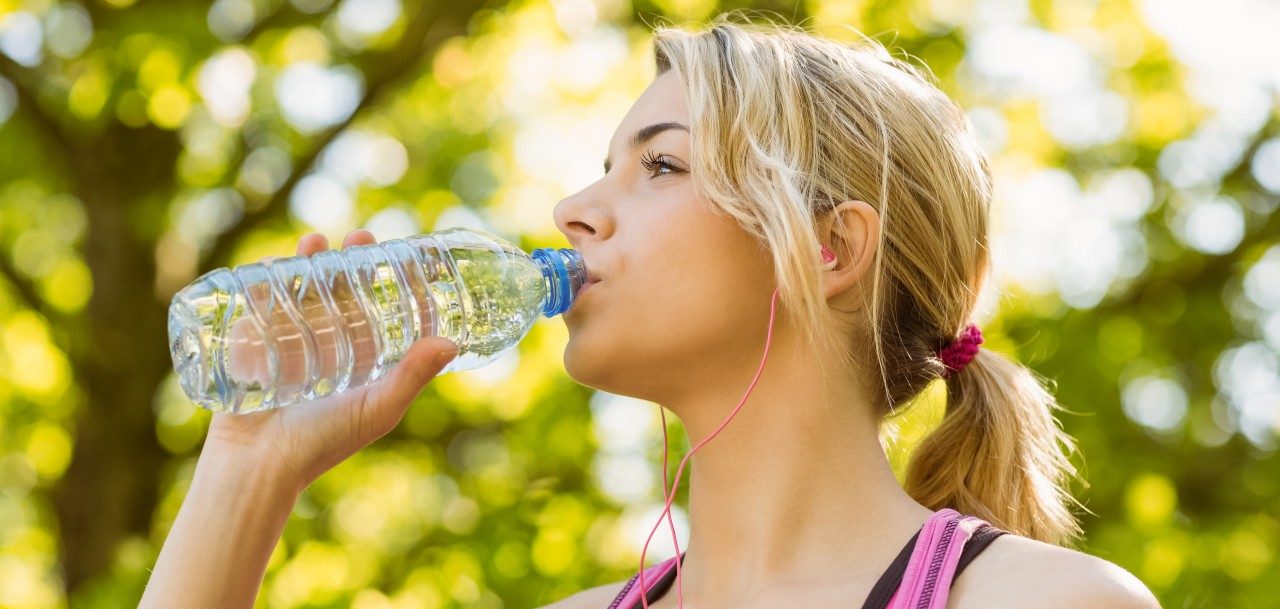Drinking Water Can Help You Reach a Healthier Weight

Drinking more water could help you win the battle of the bulge and may help you live longer. Here's what you can do to drink more water every day.
If you’re overweight and haven’t been able to lose excess pounds, adding water to your daily diet could help you reach your target weight.
Drinking more could improve your health overall.
Although there’s debate about how much water everyone needs, many estimates conclude that people don’t drink enough and end up with high salt levels in their blood. While consuming water instead of a high-calorie soda or alcoholic drink can help your waistline, the benefits of water seem to go much further.
YOU MIGHT ALSO LIKE: Drink Plenty of Water to Avoid Dehydration
Research suggests drinking less water every day than your body needs leaves you dehydrated. That could play an important role in overeating and body changes leading to type 2 diabetes and related illnesses.
In a study analyzing data from Americans in their 50s and 60s, people who didn’t drink enough were not only more likely to have obesity or a thick waistline but also had a risk four times higher of dying from a chronic disease.
Dehydration may feed metabolic syndrome, a cluster of factors related to type 2 diabetes, high blood pressure, and high cholesterol. Once you have the syndrome, your need for water increases.
It’s well-known that excessive thirst can be a symptom of diabetes, and people with metabolic syndrome experience sugar spikes if they don’t drink enough within a short period.
In the general population, higher water intake has consistently been associated with lower blood glucose levels and a higher risk of diabetes in men and sometimes in women.
In other work, researchers analyzing data from a group of Americans aged 18 to 64 determined that a third of them were dehydrated. Many had obesity and were more likely to eat a diet lacking in fruits and vegetables, which naturally contain water.
“Staying hydrated is good for you no matter what, and our study suggests it may also be linked to maintaining a healthy weight,” said study lead Tammy Chang, MD, an associate professor in the University of Michigan’s department of family medicine. “We often hear recommendations that drinking water is a way to avoid overeating because you may be thirsty rather than hungry.”
Hydration is often overlooked in adult weight management strategies, she added.
Research at the University of Lorraine in France, suggests adequate water intake can lead to weight loss, primarily because it increases a feeling of fullness so you don’t eat as much. But after analyzing studies on chronic dehydration, researchers concluded that an increased, adequate intake of water has a positive impact on metabolism at the cellular level. The result, at least hypothetically, could be fat loss.
There’s no exact number of glasses of water you need to drink each day. Instead, drink whenever you are thirsty, ideally water, and with meals. Including broth soups and foods with high water content — such as melons, tomatoes, and celery — in your diet can also help you keep hydrated. The Centers for Disease Control and Prevention recommends taking a water bottle with you when you run errands. If plain water seems like a boring drink, add a slice of lemon or lime to improve the taste and help you drink more.
The National Institute on Aging (NIA) points out that some circumstances — including exercise, aging, and taking certain medications — can increase your need for water. Visit the NIA’s Go4Life page for more information and tips on how to drink enough water daily.
Updated:
November 21, 2023
Reviewed By:
Janet O’Dell, RN